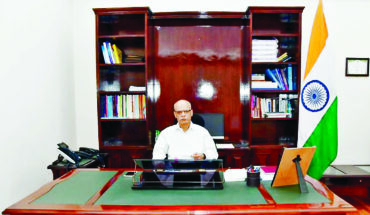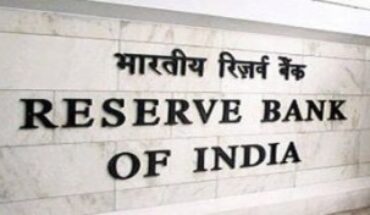New Delhi: The Associated Chambers of Commerce and Industry of India (ASSOCHAM) released its Indian Economic Confidence Survey for FY25, offering a comprehensive analysis of India’s evolving industrial landscape in the face of a shifting global economic environment. Drawing insights from a broad spectrum of companies spanning multiple sectors, the report captures the prevailing industry sentiment, operational challenges, export trends, and the policy expectations of Indian industry.
The ASSOCHAM Indian Economic Confidence Survey 2025 presents a cautiously optimistic outlook, shaped by rising costs, regulatory burdens, and logistical constraints, yet also supported by new opportunities in manufacturing growth and digital transformation.
According to the survey, nearly 54 per cent of respondent large firms, with annual turnover of more than Rs. 250 crores, reported involvement in exports indicating supportive export policies and a correlation between firm size and export competitiveness. Among firms that export, larger enterprises dominate, particularly in sectors like automobiles and components, energy, IT & ITeS, chemicals and petrochemicals, etc. However, nearly 76 per cent of respondent smaller firms, with annual turnover equal to or less than Rs. 250 crores, reported no involvement in exports, highlighting the need for greater policy push and institutional support to strengthen the export ecosystem.
The analyses reveal that 47 per cent of the respondents have indicated a moderate increase in the cost of doing business, whereas, 37 per cent have indicated a significant uptick. Key cost drivers include infrastructure cost, skilled labour, and cost of finance, among others. In addition to these, challenges related to compliance and regulatory complexity, burden exporters and domestic producers.
However, the survey finds positive signs of the transformative potential of targeted policy interventions. Nearly 32 per cent of the respondent firms involved in exports appreciated government initiatives like the Production Linked Incentive (PLI) Scheme, though its reach remains uneven. Larger respondent firms tend to engage more with such schemes, while the smaller ones cite difficulty in accessing benefits.
From a regional perspective, states like Maharashtra, Tamil Nadu, Karnataka, Gujarat, and Uttar Pradesh, among others have developed robust export ecosystems with exports spanning across several sectors. In contrast, other states like West Bengal, Goa and Kerala, among others have carved out niche positions. This geographic diversity calls for region-specific strategies to boost export competitiveness and diversity.
The survey further outlines expected regulatory, financial, and structural reforms from policymakers. Respondents expressed a need for simplification of regulatory requirements with 51 per cent indicating a preference for single-window clearance. Similar preferences include a simplified GST framework, direct tax regime reforms, and legal and contract enforcement reforms. Reducing the cost of doing business, lowering the cost of capital, and better incentives for local manufacturing to Indian companies were also mentioned by the respondents. The survey also captures other expectations based on technological support, and control of Chinese electronic imports, among others.
Speaking on the release, Manish Singhal, Secretary General of ASSOCHAM, emphasized that Indian industry continues to demonstrate remarkable resilience, but requires further support to realize its full potential. He noted that for India to emerge as a global industrial hub, particularly in manufacturing and technology services, businesses must be supported through regulatory reforms, affordable finance, reliable infrastructure, and stronger integration into global value chains. He welcomed the recent RBI’s monetary policy measure, the reduction in the benchmark repo rate, which will improve liquidity and reinvigorate business momentum. Concluding his remarks, Singhal stated that the survey findings not only reflect industry sentiment but also offer a strategic roadmap for fostering inclusive and sustainable economic growth.





